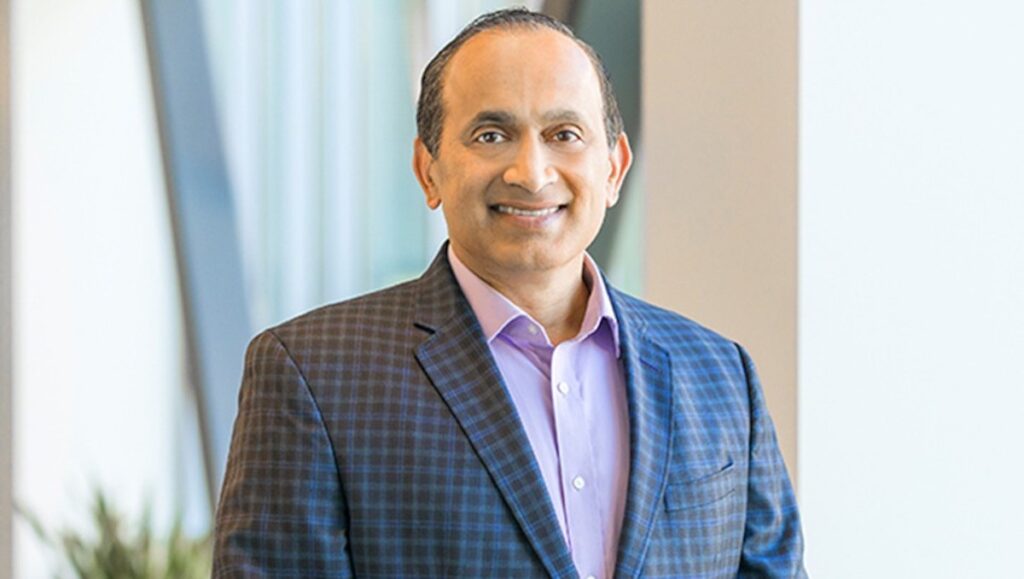Our world has changed forever. Live with it

Months after the COVID-19 pandemic disrupted our way of life, forced most of us to stay home, and finally made more people embrace digital, many of us are still in denial. Our world has changed forever. Yet you still hear people talking about returning to normal.
Which is why I’m happy to talk to people who can see the big picture, like VMware COO Sanjay Poonen, whom I had the pleasure of meeting at VMworld, which, like many events, was held virtually this year. Someone who understands that our world has changed, because everyone and everything is connected. And that all these changes happening to the way we work will also have a profound impact on the way we live, transforming human society and changing the course of history for the years and maybe even decades to come.
Changing the enterprise, transforming society

At VMworld, VMware cited remote work as one of the key developments changing the enterprise. Remote work, of course, has been seen as the future of work for years, but its adoption has accelerated because of the COVID-19 pandemic. In fact, many employees now expect work from home to become part of the new normal.
I asked Poonen how he saw these changes in the enterprise also transforming society in the near term.
“I think this is a very profound aspect of how work from home and working remotely is going to change society. Let’s talk about the positives and then potentially some of the negatives, because this is a topic that you can have me going all night and I want to make sure I can finish in a few minutes so you can get back to the next part of the agenda,” Poonen said.
“I love traveling myself. I grew up in India. I came to this country, the United States, when I was 18 and I’ve lived here for the rest of my life. But my parents spend time between India and the US. And I’ve traveled back to India almost every year since I came to the US 32 years ago. So I love traveling. I love coming to Singapore. I love coming to many of the countries here represented to visit. But I don’t like to be traveling 50 to 60 percent of the time. I don’t know that that’s necessary,” he said.
This kind of frequent business travel, however, has become expected in the corporate world, particularly for sales and customer-facing operations.
“So we travel more than we need to. And that takes time away from our families,” he said.
Why travel is not normal
In reality, however, most of that time spent traveling is unproductive. So much time is wasted moving from one airport to another, and recovering from jet lag, when for typical business travel, you only get to meet face-to-face with a few people. Making what the corporate world has defined as “normal” for decades highly inefficient, while taking a big toll on employees and their loved ones.
“It really is inefficient. Now if I could maximize my ability to have as intimate — or as close to intimate as possible — conversations with hundreds more customers, I would do Zoom calls day and night,” Poonen said.
“Now of course I still need to travel to countries to visit these customers from time to time, but if I can reduce my travel, I’ll probably live longer, I’ll probably have a happier family life, and we probably could get more business done. And I think that could have a positive impact on society,” he said.
Not made to stare at screens
Of course, Poonen also pointed out the possible negative impact.
“I don’t think we were made to sit in front of our computers, staring at a screen on Zoom all day,” he said.
Poonen said his children are going crazy, because they would rather play sports and go outside.
“So society wasn’t made to sit in front of a computer. And to study in this kind of mode. We were made for classrooms. We were made to be outdoors a little more than we are. We were made to not be in this very cloistered, socially distant place where it’s affecting mental health,” Poonen said.
“So these are positive aspects and negative aspects of the same thing, which is remote work. So we have got to find a way by which as the pandemic eases away, the vaccine comes, and this virus gets past from us, we are able to get the best elements of this wonderful technology called Zoom, and all the benefits of being able to work faster with 5G, without ruining our lives. And I think this is like a match. Is a match good or bad? It actually lights a fire, but it could also cause something to burn down.
“We want the best aspects of technology to improve our lives, improve our life expectancy, but not damage our society,” he said.
The virtual and the real
Our world has changed.
As someone who has been living in the virtual world for many years now, I’m convinced that the future of humanity lies in embracing both the virtual and the real. And in becoming more human, and more than human.
It also helps that my favorite authors include Yuval Noah Harari, who wrote “Sapiens: A Brief History of Humankind” and “Homo Deus: A Brief History of Tomorrow”, and Annalee Newitz, who penned “Scatter, Adapt, and Remember: How Humans Will Survive a Mass Extinction”.
I’m more optimistic than either of them, however. I’ve always been a techno-optimist, and a believer in using technology as a force for good. Another reason I like VMware.
Embrace change, instead of denying it.
Our world has changed.
Live with it.
6 thoughts on “Our world has changed forever. Live with it”